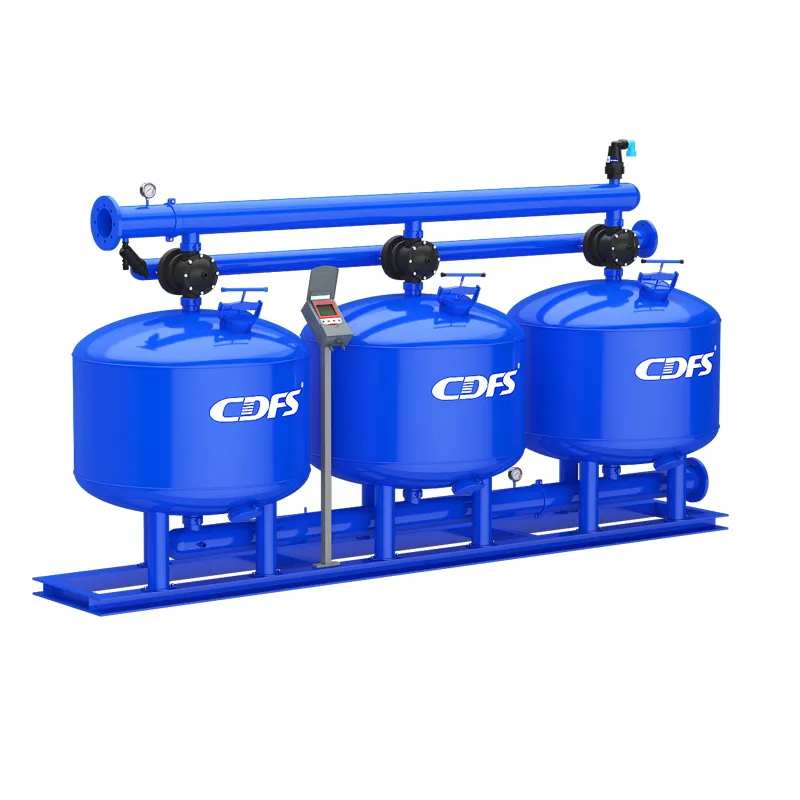
Every farmer and irrigation professional knows that water quality is key to crop success. Tiny particles, sand, or organic matter in irrigation water can clog drip lines, damage pumps, and reduce efficiency. That's where filters come in. But while the design matters, the material of the filter body—plastic or carbon steel—directly impacts performance, durability, and maintenance.

In modern farming, irrigation systems often operate daily under high pressure. Filters act as the first line of defense, removing debris before it reaches delicate drip emitters or sprinklers. Without proper filtration, blockages can lead to uneven watering, wasted resources, and reduced crop yields.
Screen filters: Capture large particles.
Disc filters: Handle fine sediments and organic matter.
Sand media filters: Ideal for high-volume filtration in large-scale farms.
Both plastic and carbon steel materials are used in filter types. The choice often depends on water source, farm size, and budget.
Lightweight and easy to install: Plastic filters require less labor for installation, making them popular in small to medium farms.
Corrosion-resistant: Unlike steel, plastic doesn't rust, making it ideal for water with high salt content.
Cost-effective: Generally cheaper upfront, which helps reduce initial investment costs.
Low maintenance: Plastic filters are simple to clean and maintain.
Lower pressure tolerance: Plastic may not withstand extreme pressures found in large-scale irrigation systems.
Shorter lifespan: Sun exposure and heavy use can degrade plastic over time.
Limited durability: Not ideal for rocky or abrasive water sources.
Superior durability: Strong enough for heavy-duty agricultural use.
High pressure resistance: Performs well in large-scale drip and sprinkler irrigation systems.
Longer lifespan: With proper coating, steel filters can serve farms for many years.
Adaptable to harsh conditions: Handles abrasive or sediment-heavy water better than plastic.
Prone to corrosion: Steel can rust over time.
Heavier and harder to install: Requires more labor and sometimes machinery.
Higher upfront cost: More expensive than plastic, but may pay off in longevity.
Small-scale farms or saline water sources → Plastic filters may be the smarter choice.
Large farms with high-pressure needs → Carbon steel filters are worth the investment.
For long-term ROI → Steel filters often deliver better value over time.
When budget is tight → Plastic filters are practical, especially for start-ups or small operations.
The best filter depends on your farm's scale, water quality, and budget priorities.
1. Which filter lasts longer: plastic or carbon steel?
Carbon steel filters typically last longer, especially under heavy use, provided they are coated to resist corrosion.
2. Are plastic filters suitable for high-pressure irrigation systems?
Not always. Plastic filters are better suited for moderate-pressure systems. High-pressure setups demand carbon steel.
3. Do steel filters require special maintenance?
Yes. Steel filters need regular checks for rust and should be recoated if corrosion starts.
4. Which is more cost-effective in the long run?
While plastic filters cost less upfront, carbon steel filters often prove more cost-effective due to longer lifespan.
When comparing plastic filters vs carbon steel filters, the decision comes down to farm size, water quality, and budget. Carbon steel filters, offer unmatched durability and pressure tolerance for large agricultural operations. By carefully weighing your needs, you can choose a filter that improves irrigation efficiency and safeguards your crops.
